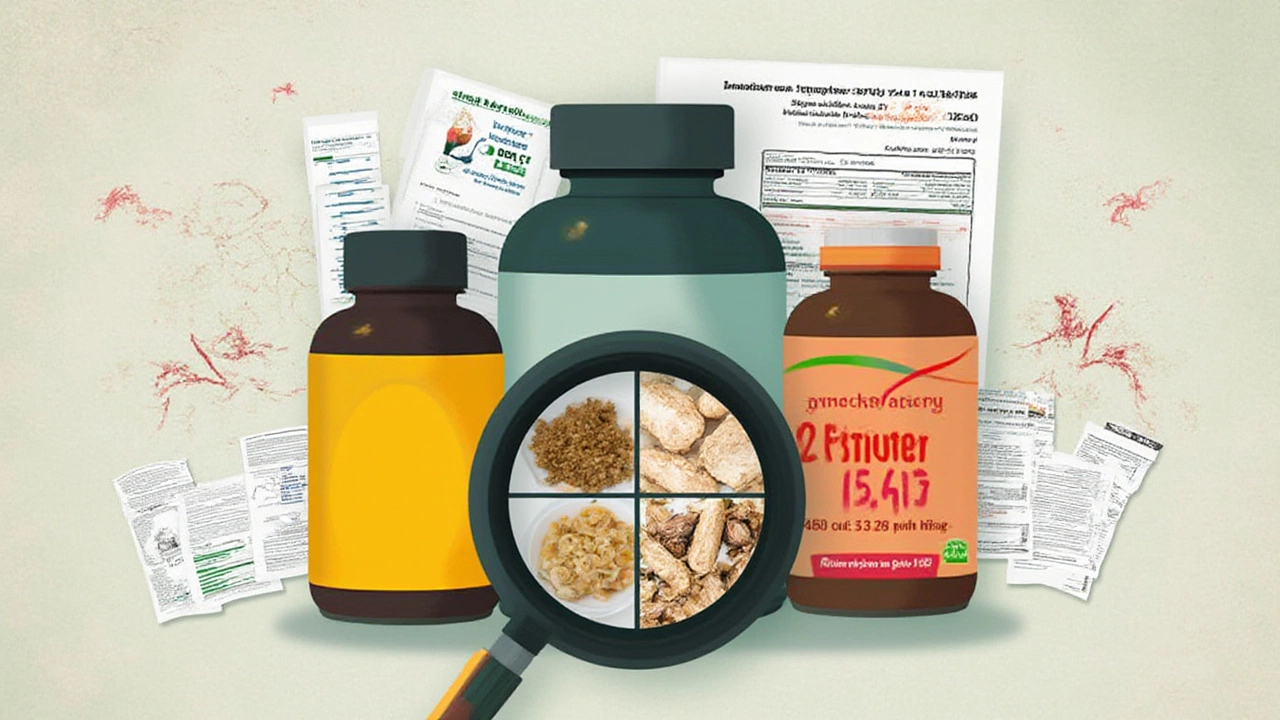
If "one magic pill could melt away belly fat overnight," why haven't you or I seen it? The nail-biting truth is, despite slick ads, billboards, and countless bottles lining pharmacy shelves, that silver bullet just doesn’t exist. The history of weight loss pills is full of dramatic rises and spectacular crashes. Some even came with side effects worse than carrying a few extra kilograms. If you've googled phrases like "top weight loss pill," you're not alone—last year, more than 15 million people made that exact search. It’s messy territory, packed with clever marketing, hopeful promises, and more than a few red flags.
What Is the “#1 Weight Loss Pill”—and Does Such a Thing Exist?
You probably want something straightforward here. The honest answer? There’s no single "#1 weight loss pill" that works perfectly for everyone, every time. We're talking about humans with all kinds of bodies, lifestyles, genetics, and temptations (trust me, those late-night samosas Mira brings home aren’t helping anyone’s discipline). But give credit where it’s due: some weight loss pills out there actually have solid research backing them—just not the wild claims you see in magazine ads.
If you scroll through pharmacy apps or even try the Instagram route, you’ll spot names like Orlistat (Alli/Xenical), Phentermine, Lorcaserin (which, by the way, was pulled from the US market), and more recently, prescription meds like Semaglutide (Wegovy, Ozempic) and Liraglutide (Saxenda). Each has a different approach—some block fat absorption, while others make you feel full or reduce appetite. Here’s the thing: none will work miracles on their own. Keeping the weight off usually depends more on what’s on your plate and how often you move your legs.
Here’s a table with the most commonly prescribed weight loss pills in 2025, along with how they work, reported results, and potential side effects:
| Medicine | How It Works | Avg Weight Loss | Key Side Effects |
|---|---|---|---|
| Orlistat (Alli/Xenical) | Blocks some fat absorption | ~3-4kg in 6 months | Oily stools, cramps |
| Phentermine | Appetite suppressant | ~4-5kg in 12 weeks | Increased blood pressure, insomnia |
| Liraglutide (Saxenda) | Increases satiety | ~5-6kg in 6 months | Nausea, vomiting |
| Semaglutide (Wegovy) | Increases satiety | ~10-15kg in 12-18 months | GI upset, risk for thyroid tumors |
See Semaglutide? That’s the celeb-favorite right now. Some folks see 15% of their body weight gone in a year and a half—the highest numbers we’ve ever seen in obesity medicine. But it’s prescription-only (don’t trust any online seller claiming otherwise), injectable, not cheap, and has legit risks to consider.
Most "miracle" pills you find outside a doctor’s office—herbal blends, green coffee, garcinia cambogia—rarely deliver consistent, safe results. The FDA has pulled more than a dozen of these off shelves for hidden amphetamines, steroids, or dangerous laxatives. If it sounds too good to be true, it usually is.
How Do These Pills Actually Work?
Let’s bust some myths here. There isn’t just one way a weight loss pill works. They mostly fall into a few strategies:
- Reducing appetite or making you feel full faster (Phentermine, Liraglutide, Semaglutide)
- Blocking fat absorption in the gut (Orlistat)
- Increasing energy usage (claim made by some over-the-counter stimulants, but often overstated and risky)
Prescription options are usually given for folks with a BMI above 30, or above 27 if there’s a weight-related issue like diabetes or high blood pressure. We’re not talking about dropping five pounds before a wedding here; these meds target chronic, stubborn obesity—and always in combination with diet and activity changes.
Those over-the-counter options often combine caffeine, fiber, diuretics, or herbal ingredients. Most scientific studies on these are small and short-term. For example, green tea extract may bump up fat burning a tiny bit, but not enough to give lasting results without actual lifestyle changes. Some herbal products, like bitter orange or ephedra, have even sent people to the emergency room with heart issues.
If you’ve heard friends rave about appetite control from new "metabolic boosters," double-check the labels. Turns out, a big chunk of the success actually comes from not eating that midnight pizza, not the fancy branding. Real game-changers are rare—the FDA only approves a new weight loss drug after seeing proof of both effectiveness and long-term safety.
This safety part gets even trickier if you’re on other meds. There’s a real risk of interactions. Always, always talk to your healthcare professional before choosing anything.

What Science Actually Says About Weight Loss Pills
Randomized studies—the gold standard—give us a hard look at just how much weight people actually lose. Short version: nobody melts away half their body weight overnight. The best results usually show up as an extra 3-10% drop in body weight over a year, compared to diet and exercise alone. Let me put that in human terms. If someone weighs 100kg, that’s only about 3-10 kilograms lost with a pill, if you stick with it and don’t quit after a month.
With Semaglutide, research in 2022 and 2023 showed people lost about 12-15% of their weight after 68 weeks. Researchers started calling it “game-changing” for a reason. Liraglutide brings in about 6-8%, on average. Orlistat and Phentermine usually stay in the lower bracket (3-5%).
The biggest chunk of the effect almost always comes from lifestyle changes—the classic “eat less, move more” mantra. Pills just give a nudge. Miss the diet and exercise and the effects nosedive. I’ve seen friends on weight loss pills drop 5kg in 2 months, then regain it within a year after stopping.
Let’s not ignore possible side effects. Gastrointestinal troubles like oily stools (thanks, Orlistat), nausea (with GLP-1 drugs like Semaglutide), or increased heart rate and blood pressure (from stimulants like Phentermine) come with the territory.
- Weight loss pill use is not for everyone and is not a quick fix for cosmetic weight loss.
- If you have serious heart or thyroid issues, many of these drugs are a hard no.
- Long-term safety for newer drugs (like Semaglutide for weight loss, rather than diabetes) is still being studied, so it pays to be cautious even when there’s a lot of hype.
Another overlooked issue—weight loss plateaus or rebounds if you go off the medication. Medical research shows most regain at least some (or all) of the lost weight if they stop treatment, unless they dig in deep with habits.
I dug into forums, read case studies, and even talked to a couple of dietitians. Some users wrote that pills worked like a boost; others had none or even felt worse. Not a single magic fix in sight. Consistency and honesty about risks matter most.
Tips Before You Consider a Weight Loss Pill
If you’re thinking about trying a weight loss pill, even after hearing reality checks, you’re not alone. Internet searches for weight loss supplements or best weight loss medications are still exploding in July 2025. Here’s what I’d want anyone (including myself or Mira) to double-check first:
- Talk to a trusted doctor—not anyone on WhatsApp or Instagram—about your weight, health risks, and best options. Only prescription drugs from licensed pharmacies go through real safety testing.
- Look beyond the scale. Numbers drop, but you want energy, stamina, and a healthy heart. That matters more than a tiny waist for most people.
- If you get a prescription, use it exactly as instructed. Don’t mix pills or add extra supplements without a medical okay. The wildest side effects often come from “stacking” products.
- Set realistic goals. Losing 5-10% of your starting body weight is both achievable (with help) and proven to cut risks for diabetes, heart disease, and even joint pain.
- Always read about potential side effects—real ones, not just the “herbal and safe” slogans. Report anything unusual to your doctor right away.
- If you buy anything online, stick with certified pharmacies—the fake market is flooded with unsafe, contaminated products. A study in 2023 showed 58% of pills from unverified online sellers contained undisclosed ingredients, including prescription meds, steroids, and risky stimulants.
- Work on lifestyle without waiting for pills to fix things. Plan meals, move more, sleep better, and work on stress. These have lifelong payoffs even without meds.
In the end, the most popular weight loss pill changes with every new celebrity endorsement or research breakthrough, but the basics remain stubbornly the same: safe, sustainable weight loss always needs patience, honesty, and usually a bit of help from real medical tools. There’s no shame in asking for help—just make sure it’s the right kind. If you’re tempted by the latest trending pill, remember: flash fades, but the boring, old-school routine sticks.





